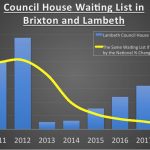It is vital that landlords keep in touch with all legislation changes. A landlord that doesn’t comply with the most recent legislation will find themselves at risk of facing a penalty, which could be financial or it could impact on their ability to serve as a landlord. There are many different pieces of legislation that a landlord needs to be aware of and here are just a start of the long list, in the next couple of weeks I will do my best to keep you fully informed of what you need to know and will post it for you.
The Right to Rent and The Immigration Act 2016
This is relevant with respect to the Right To Rent legislation, Landlords and Letting Agents must check that a tenant or lodger can legally rent residential property in England. There is a procedure of checking the document, after the follow up and to keep in file for 12 months after the tenancy expires, failure to comply can result now an unlimited fine or up to five years in prison.
The vast majority of landlords who are found to be renting to illegal migrants and who have not carried out Right to Rent checks will be dealt with under the civil penalty regime.
Mortgage interest relief
As of April 2017, there was a change to the way that tax is calculated for landlords, with tax being imposed on turnover, not profit. Many landlords have found that this change, which is being phased in over a four year period, to be detrimental to their finances.
Any landlord who is in the basic tax rate bracket and who isn’t pushed into a higher tax bracket due to these changes will find that their income is unaffected. However, landlords in the advanced and higher tax brackets, and landlords who were initially in the basic bracket before being pushed up, will find that they have a higher tax bill to pay.
With many landlords already being close to their financial limit, it is essential that landlords examine these changes and ensure that they are not affected in such a way that it will harm their finances.
Housing & Planning Act 2016
This legislation, which came into force in April of 2017, provides local councils with a greater level of ability to crack down on rogue landlords. There is an opportunity to impose higher fines on landlords that repeatedly offend, with offences including:
• Evicting tenants illegally
• Renting out property which is considered to be unsafe
• Not carrying out work to health and safety standards
• Renting property to someone who doesn’t hold the legal rent to stay in the UK
• Using violence or the threat of violence against a tenant
• Committing identity theft
• Making fraudulent applications with respect to housing benefit
• Allowing cannabis to be cultivated in the property
• Acting alongside the tenant to commit a criminal offence
Landlords should also be aware that banning orders can be imposed on them, preventing them from acting as a landlord or agent.
EPC ratings
As of the 1st of April 2018, all new or renewed let’s can only occur in a property that holds an EPC rating of E or better. As of the 1st of April 2020, all lets, including existing lets, must meet this EPC requirement. There is also legislation in place that allows tenants to demand that reasonable improvements take place.
Landlords should also be aware that it is likely that more stringent electrical safety legislation will be put into place, which means they will need to ensure that their property is up to the expected standard.
With so many pieces of legislation to comply with, it is easy to see why landlords can overlook matters or get confused. If you need assistance in ensuring you are fully comply with all legislation, get in touch and I will be happy to help.


